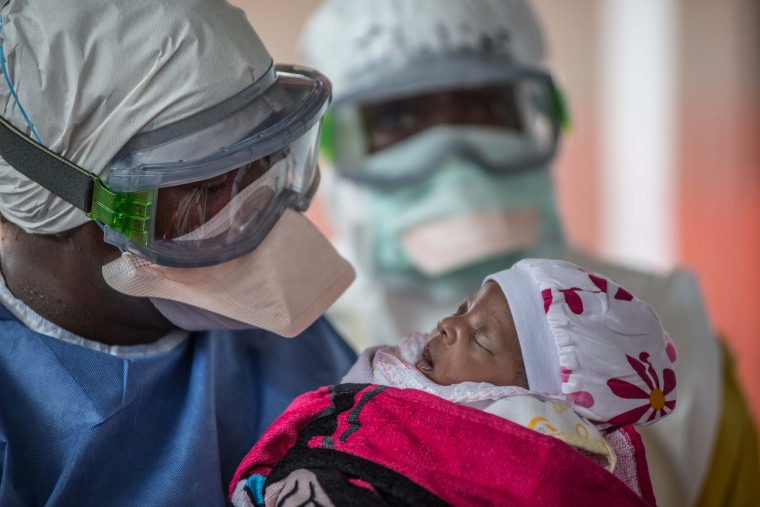Researchers said Tuesday they are testing a new drug in men who still have evidence of Ebola virus in their semen months after they’ve recovered.
The study, partly sponsored by the U.S. National Institutes of Health, will test whether the drug can clear the virus from the men’s bodies. At least one fresh outbreak of Ebola in Liberia has been traced to the semen of a man who had recovered from the infection.

“We know that traces of Ebola virus can sometimes remain in a recovered person’s body and can initiate a new bout of illness in the survivor or be passed onto others, which could start a new chain of infection in the community,” said Dr. Tony Fauci, director of the National Institute of Allergy and Infectious Diseases, part of the NIH.
The two-year-long epidemic of Ebola infected 28,000 people and killed more than 11,000 in Liberia, Guinea and Sierra Leone.
Even after doctors thought they’d stopped new infections, cases would pop up seemingly out of the blue. In March 2015, a woman died of Ebola in Liberia. Investigations determined she was almost certainly infected by her fiancé, an Ebola survivor.
Many survivors have suffered long-term consequences of their infection, often caused by the virus surviving in hard-to-reach pockets of the body.
Related: Scottish Nurse in Critical Condition After Ebola Recovery
The trial will test a drug called GS-5734, made by drug company Gilead Sciences, which specializes in antiviral drugs. It’s protected animals against Ebola and has been safe in early tests in people.
The study is one of several the U.S. government wants to continue funding even after the end of the Ebola epidemic. Experts say Ebola is certain to come back again in Africa, and point to the West African epidemic as evidence of how vital it is to keep working on vaccines and drugs to treat it.
Related: Researchers Struggle For Cash for Ebola Vaccine
Some of this Ebola funding has figured in the fight for Zika funding in Congress. Some Republican members have proposed Zika funding packages that take money from programs aimed at Ebola, saying that Zika is a more urgent priority and Ebola can wait. The White House has asked for $1.9 billion in fresh funding to fight Zika’s spread, saying both programs need the money.
Zika virus, which is unrelated to Ebola, can also be spread by men’s semen.
The World Health Organization advises Ebola survivors to abstain from sex for three months or use a condom. Ebola definitely spreads through bodily fluids — vomit and diarrhea, blood and even sweat. Infection requires close, sustained contact, however, and caregivers are most at risk, as are the people who prepare the bodies of people killed by Ebola.
Related: Ebola Outbreak Over — Again — in Liberia
Other drugs against Ebola are also in testing, including ZMapp, a cocktail of antibodies. One drug made by the former drug company Tekmira, now renamed Arbutus Biopharma, was dropped after it did not show good efficacy.

